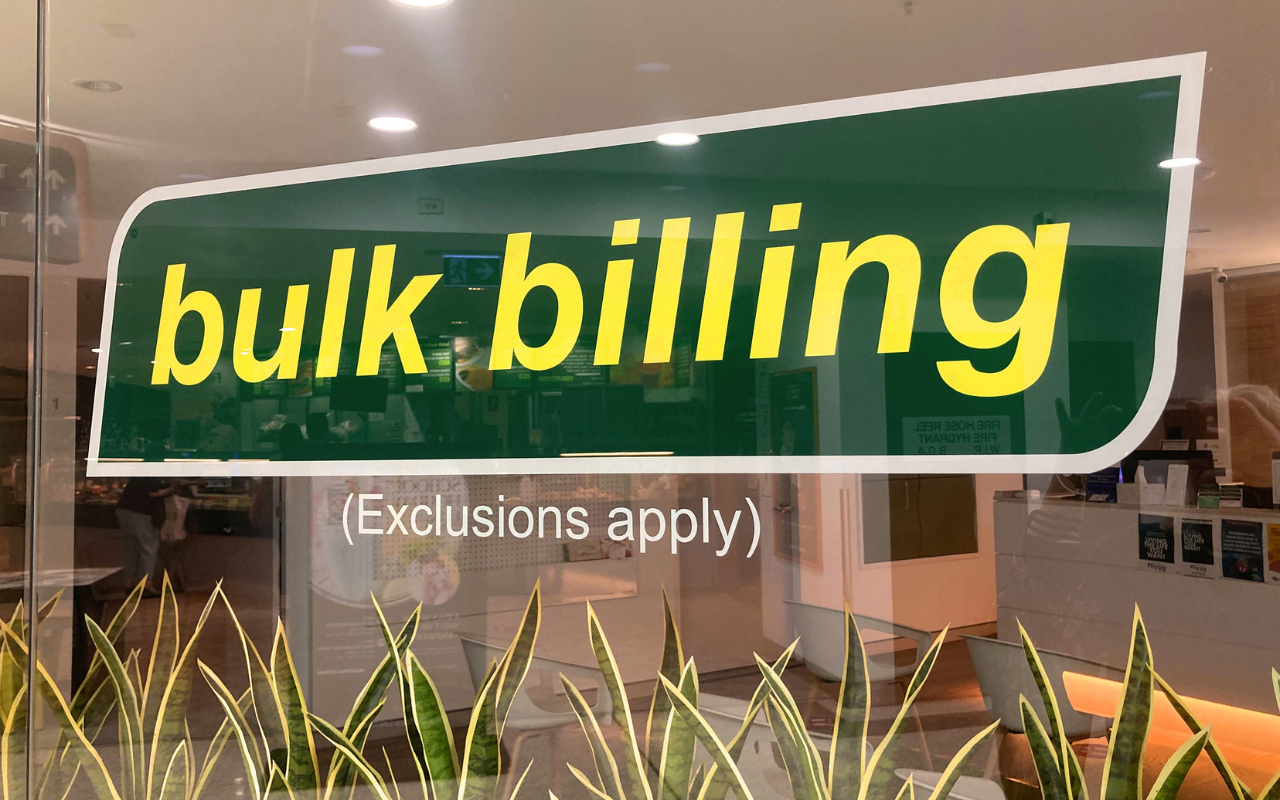Not all GPs are convinced the Bulk Billing Practice Incentive Scheme will benefit their practice
Historic changes to Medicare encouraging doctors to bulk-bill for every visit are causing concern about whether it’s financially sustainable for each practice.
The $7.9 billion dollar government package is aimed at addressing the decline in bulk-billing since the pandemic.
The changes are not compulsory, with not all doctors signing up to the Bulk Billing Practice Incentive Program, for fear that future governments may roll the scheme back.
Royal Australian College of General Practitioners (RACGP) President Dr Michael Wright welcomed the program, saying the changes represent the largest increase in Medicare investment in years.
However, he concedes the changes won’t suit every GP and involve a huge leap of faith from doctors as well as significant administrative adjustments.
“For these GPs, this decision is fundamentally a trust issue, not just a financial one. While this government has shown its commitment to Medicare, there is no guarantee a future government will do the same,” Dr Wright said.
“We know the new incentives will increase support for many GPs and their patients, particularly for practices universally bulk-billing and those in regional and rural Australia where the incentives are greatest.
“But as the Department of Health’s modelling shows they won’t work for all practices.
“After a near decade long Medicare freeze and years of chronic underfunding, many GPs are nervous about switching back to a system that once again makes them 100% reliant on government funding decisions.”
Federal Health Minister Mark Butler has said he is confident the changes will mean nine out of 10 GP appointments will be bulk-billed by 2030.
Practices participating in program will receive an additional 12.5% incentive payment on MBS benefits paid from eligible services, split evenly between the GP and the practice.
Participating practices must bulk-bill for every Medicare-eligible patient.
Dr Wright said GPs need long term certainty for their practices and their patients and called for understanding from both the government and patients for doctors who decide not to sign up.
“The Royal Australian College of GPs has been supporting our members to understand the new incentives, so they can make an informed decision about whether they will work for them and their patients,” Dr Wright said.
“Practices and GPs across Australia will do what is in best long-term interests of their patients, their practices, and the communities they serve.
“Nobody wins if practices are forced to close their doors for good because practice running costs can’t be covered.
“We ask all patients, and the government, to respect the billing practice of their GP, and to speak to practice team staff members with respect and courtesy — they’re only doing their job.”
Nance Haxton was a journalist at the ABC for nearly 20 years. She’s also worked as an Advocate at the Disability Royal Commission helping people with disabilities tell their stories and as a senior reporter for the National Indigenous Radio Service.
In that time she’s won a range of Australian and international honours, including two Walkley Awards, and three New York Festivals Radio Awards trophies.
Now freelancing as The Wandering Journo, Nance is independently producing podcasts including her personal audio slice of Australia “Streets of Your Town”.
Subscribe to the free InSight+ weekly newsletter here. It is available to all readers, not just registered medical practitioners.

 more_vert
more_vert
I think that RACGP and AMA should unite to have a greater say in affairs of GPs all around the country eg pharmacists are united and have so much clout on what they have achieved!
We as a small practice 1.5km. From Gold Coast university hospital cannot find GPs because corporate bodies offer great incentives that we cannot afford.
Thank you ‘Anonymous ‘ for highlighting that the rebate is for the patient, not the doctor or practice, and this new arrangement is unfair. The intent of and messaging around bulk-billing has been moved gradually so that Australians have been led to expect a signifiant discount from highly trained professionals that they wouldn’t ever expect from a tradesperson. All taxpayers foot the bill for the government’s supposed generosity.
This incentive continues a long-standing pattern of prioritising consultation volume over consultation time, rewarding throughput while disadvantaging complex care. The core metric remains services delivered, not care delivered, because volume is easy to count and politically visible, while quality is harder to measure.
Rebates alone will not sustain primary care in the long term unless funding aligns with the time and complexity real care requires.
I think the government missed a great opportunity here. If they had increased the rebate by the amount they are promising for full bulk billing, the incentive then would be for practices to make their gap affordable for those who did not warrant BB’ing. I believe a “free service” ie BB’ing can be viewed by many patients as having no value and abused, as I found when I worked in a full BB’ing practice.
Why trust governments where they talk out of both sides of their mouths. This goes back decades where there are “core and non core” promises. Bureaucrats hide behind these and kick cans down the road avoiding any impactful decision.
It is compulsory also to display branding signs unless the practice is a AMS
is not the rebate for some and not all discriminatory . The rebate is for the patient – 2 different doctors for the same level of care but vastly different rebates!